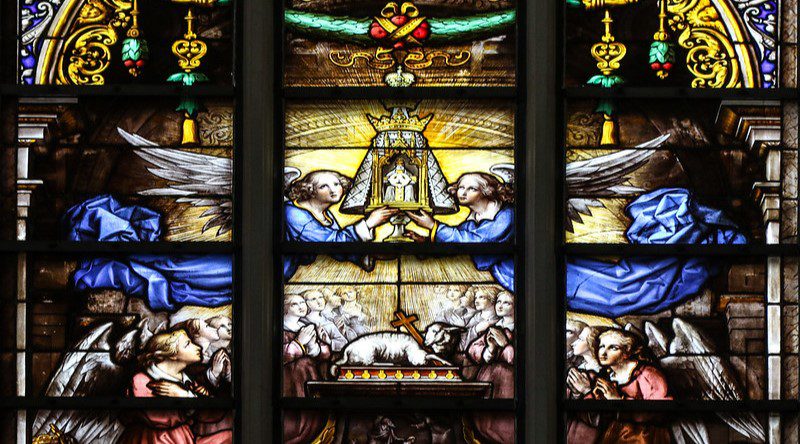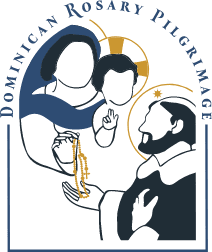A Holy and Living Sacrifice
Dominican Friars | April 4, 2024

At the beginning of the Easter season, it is worth considering that the Body of Christ present at the Mass is the Body of the living Jesus Christ, not a corpse. And the Blood we receive is the very blood that, even now, flows through the veins of Christ. This blood is no longer spilled and seeping into the earth as it was on Good Friday. The victim of the one sacrifice that takes away all sins—through which we worship God in the most perfect way—is alive, not dead.
This victim we offer at Mass was sacrificed. Christ was slain, but he is no longer dead. The Body we offer to God in sacrifice is alive. The Blood we offer is no longer shed. For, as the priest says in one of the Eucharistic prayers, we “offer this holy and living sacrifice.” Can we offer a sacrifice that is alive?
This might make more sense if we consider that the effects of some actions endure, even when the action that brought about that effect has passed away. One moment, a man and a woman are exchanging consent during a wedding. The next moment, however, the wedding is over. The wedding is done and well into the past. But what that wedding brought about endures. For the wedding brought about a marriage, and the marriage endures long after the wedding is over. One moment, a man or a woman professes religious vows by speaking the words of a vow. But the next moment, he or she is no longer speaking or saying anything. Yet the vows—and the state the vows brought about—remain.
With this in mind, consider a line from the Letter to the Hebrews: “Son though he was, [Christ] learned obedience from what he suffered; and when he was made perfect, he became the source of eternal salvation for all who obey him” (Heb 5:8–9). At its core, Christ’s work on the cross was an act of loving obedience to the Father for our sake. But he still has the obedience he “learned,” even though his physical suffering is in the past. The act of obedience that Jesus offered through the offering of his body unto death endures, even though his body is no longer dead. The charity that Christ poured out through the pouring out of his blood still seeps into the heart of the Church, filling her members with that same charity, even though his blood no longer seeps into the earth.
And it is precisely because of his perfect, obedient charity—an act of charity that endures—that Christ rose from the dead and lives forever. Death cannot hold captive one who is so bound to God; the one who is himself the author of life. But his Body and Blood still constitute a sacrifice because the sacrificial act of will that led Christ even unto death remains. His will, his obedience, his charity, lie hidden in his body and concealed within his blood. And it is this sacrifice that makes us holy: “[Christ] said, ‘Behold, I have come to do your will.’ . . . By this will we have been sanctified through the offering of the body of Jesus Christ once for all” (Heb 10:9–10).
We offer our own obedience and charity through the sacrificial offering of Christ’s body and blood—we participate in his supreme act of worship. For that reason, our “lives are hidden with God in Christ.” (Col 3:3) Our dying to sin through baptism enables and prepares us to offer our own obedient wills to God the Father through Christ’s Body and Blood. And in this offering, Christ’s life becomes our own. Even though we will die, in Jesus’ resurrection, we will be raised: “whoever eats this bread will live forever” (John 6:51a).
This article was originally published on dominicanajournal.org and was written by Br. Nicholas Hartman, O.P.
